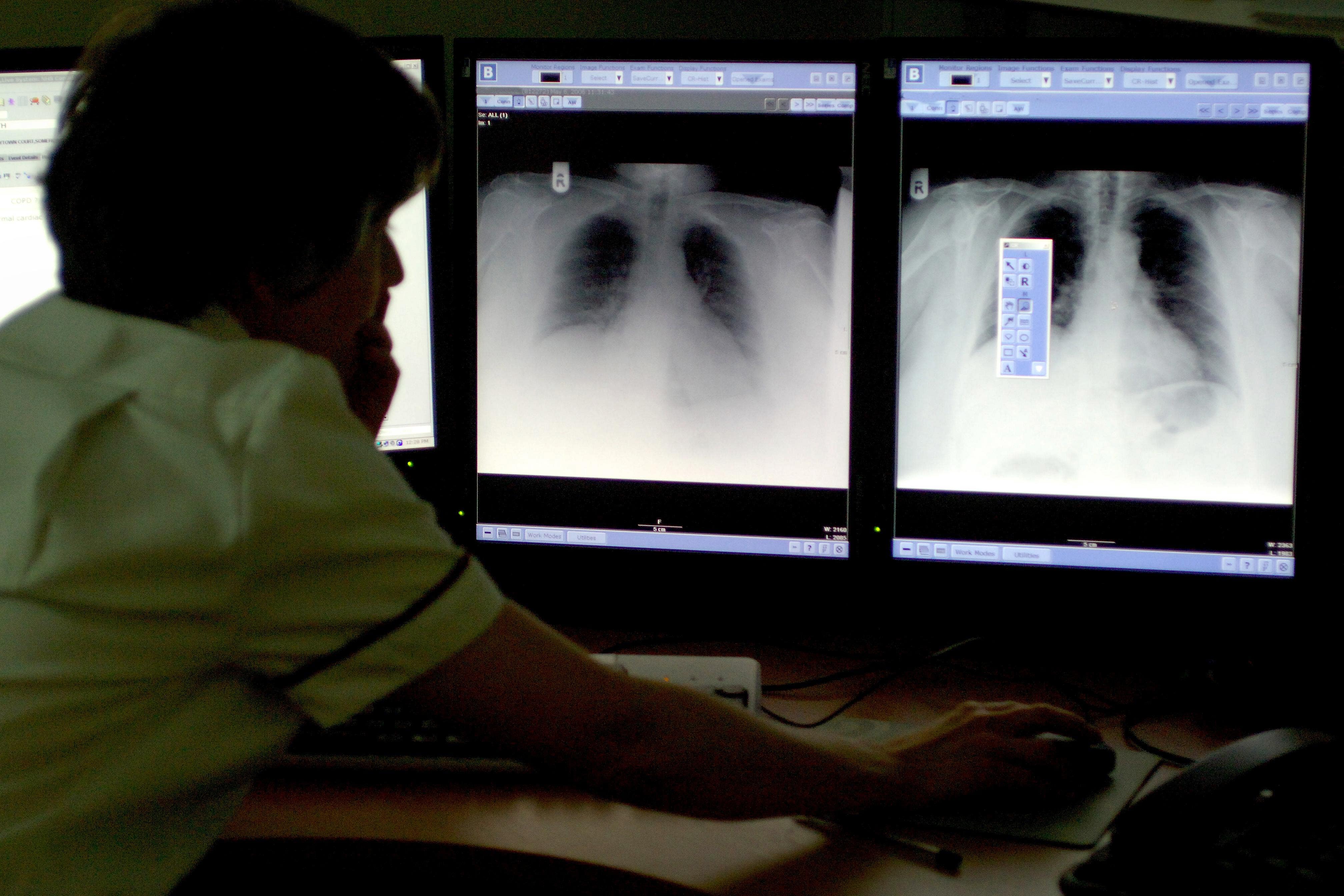Early signs of lung cancer could be detected through your urine in world-first test
Pioneering urine test detects presence of ‘zombie’ cells in lung tissue

Your support helps us to tell the story
From reproductive rights to climate change to Big Tech, The Independent is on the ground when the story is developing. Whether it's investigating the financials of Elon Musk's pro-Trump PAC or producing our latest documentary, 'The A Word', which shines a light on the American women fighting for reproductive rights, we know how important it is to parse out the facts from the messaging.
At such a critical moment in US history, we need reporters on the ground. Your donation allows us to keep sending journalists to speak to both sides of the story.
The Independent is trusted by Americans across the entire political spectrum. And unlike many other quality news outlets, we choose not to lock Americans out of our reporting and analysis with paywalls. We believe quality journalism should be available to everyone, paid for by those who can afford it.
Your support makes all the difference.Scientists have created a new urine test which could indicate the first signs of lung cancer. The majority of cases of lung cancer in England are diagnosed at later stages, meaning the disease can be harder to treat.
Cancer Research UK figures show that around 46 per cent of cases are diagnosed when a person has later stage cancer. About 43,000 people are diagnosed with lung cancer in the UK each year but only 10 per cent of people survive for 10 years after a diagnosis of lung cancer.
But researchers hope that early detection could mean that patients get treatment sooner, giving them a better chance of overcoming the disease.
The pioneering test looks for so-called “zombie” cell proteins which could indicate a patient has lung cancer in its earliest stages.
It has been successfully tested on mice and scientists are hoping to start testing in humans soon.
Scientists at the University of Cambridge’s Department of Chemical Engineering and Biotechnology, and the Early Cancer Institute, looked at proteins excreted by senescent cells.
These cells are often referred to as “zombie cells” because they are alive in the body but are unable to grow and divide.
The cells cause tissue damage by reprogramming their immediate environment to help promote the emergence of cancer cells.
Now, scientists have developed an injectable sensor that interacts with zombie cell proteins and releases an easily detectable compound into urine, which signals their presence.
Professor Ljiljana Fruk said: “We know that before cancer emerges there are changes in the affected tissues. One of the changes is the accumulation of damaged cells that are not damaged enough to be removed, but enough to release signals that reprogram the tissue and make it perfect for cancer development.
“We identified a specific protein released by these cells in lung tissue and designed a probe that is cut into two pieces in its presence. The probe is composed of two parts and the smaller one is released into urine through kidneys.
“Once in urine, this part of the probe is too small to be detected, but it can be made visible by adding a bit of silver solution to it – the same silver compound used in photography in the early days of analogue photos.
“By monitoring the colour of urine after the injection of the probe we can say if cells are present in lungs that would indicate the early signs of pathological changes that might lead to cancer.”
Scientists behind the study, which is being funded by Cancer Research UK, said they were keen to find a test which was a cheaper alternative to expensive scans.
Prof Fruk added: “We urgently need cost effective, easy to use and sensitive strategies for early detection of cancer, particularly within high-risk groups or those in danger of cancer recurrence.”
Experts are hoping to end the pre-clinical stages of clinical trials soon and assess the effectiveness of the test in humans.
“We have proven that urine detection works in mice,” Prof Fruk said. “We now need to move to more pre-clinical validation, identification of specific proteins in other cancers – we are interested in breast, melanoma and pancreatic cancer – and then validate it in patients.”
Dr Iain Foulkes, Cancer Research UK’s executive director of research and innovation, said: “Cancer Research UK has been at the heart of lung cancer progress for more than 50 years, with over half a million lives saved from lung cancer since the mid-1980s.
“The announcement of this project being led by Professor Fruk is another example of our commitment to driving progress so that more people can live longer, better lives, free from the fear of cancer.”
Join our commenting forum
Join thought-provoking conversations, follow other Independent readers and see their replies
Comments